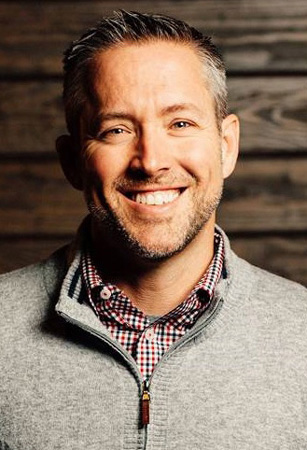
EDITOR’S NOTE: Sunday, Feb. 10, is Racial Reconciliation Sunday in the Southern Baptist Convention. J.D. Greear is president of the Southern Baptist Convention and pastor of The Summit Church in Durham, N.C.
DURHAM, N.C. (BP) — “Kairos” is one of those Greek words that my pastor used all the time in the church where I grew up. He explained that it was a special word implying a specially appointed moment in history — a time when God was up to something, a moment when God rewrites the narrative.
I wasn’t sure exactly what it all entailed, but I knew I really wanted to be part of one.
I believe the American church is in a kairos moment regarding race, a moment God has appointed for the church to rise up and demonstrate a unity in Christ that the world yearns for.
Our society is not short on its declarations of intent for racial harmony. We hear words like “post-racial,” “multi-cultural,” “color-blind,” “color-brave” and “intersectionality.” We memorialize the words of Dr. Martin Luther King Jr. who longed for a day when our children would “not be judged by the color of their skin but by the content of their character.” We remind ourselves that our very nation was founded on the idea that “all men are created equal.”
But then we see evidence of bias in the entertainment industry. Or the media. Or something like Charlottesville happens. And we realize that our declarations of racial reconciliation are a thin veneer papered on a society still very much divided on issues of race.
What our society is unable to produce through declaration, the Gospel produces through a new humanity.
The Gospel teaches us that all people are created equal because they are each made in the image of God. All ethnicities suffer from a common problem — sin — and look toward a common hope — Jesus. The Gospel creates a new humanity, a redeemed race made up of all colors in Christ’s image.
In fact, here’s a little known fact about the book of Romans, the apostle Paul’s longest-ever treatment of the Gospel. It was written to a church experiencing ethnic division between Jew and Gentile, showing that through the cross God created a brand-new humanity. Unity in Him would outweigh any divisions we experience in culture.
Whenever we experience ethnic strife in our churches, it’s not that our ethnic differences are too big. It’s that our sense of the Gospel is too small.
God created a diversity of ethnicities to display His glory like a multi-splendored diamond, and we ought to see that glory first reflected in the church.
Not only were we created as one race, but around the great throne of Christ in Revelation we will worship the risen Son with people from every tribe, tongue and nation. The church, God’s “Plan A” for rescuing the world, must stand as a place of refuge for people of every color, of every background, of every segment of society.
At our church we say we want to reflect the diversity of our community and proclaim the diversity of the Kingdom.
The makeup of our attendance on the weekend should unequivocally declare:
We are one race — the human race.
United under one Savior — Jesus Christ.
With one problem — sin.
United with one hope.
Resurrection.

















